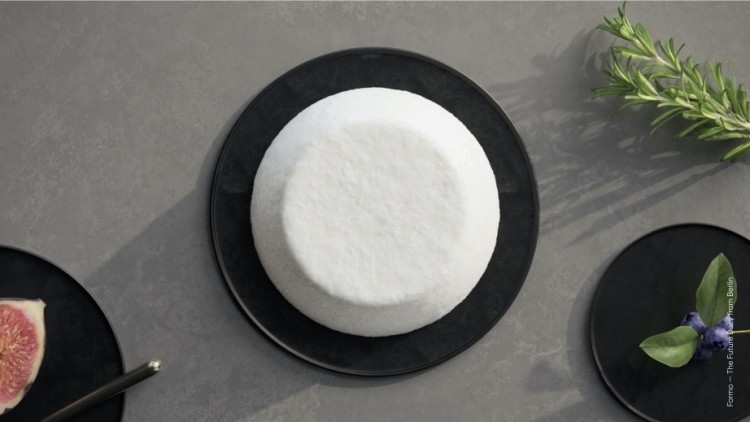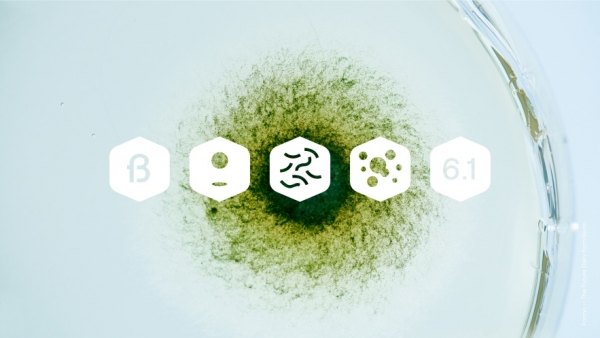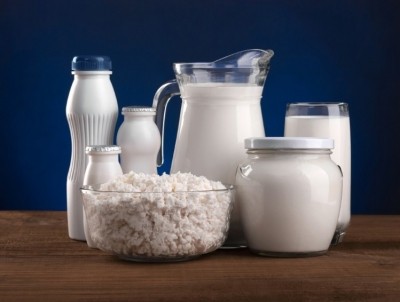Formo accelerates towards precision-fermented dairy at ‘industrial scale’ and ‘affordable price’

Formo is a Berlin-based start-up that uses microorganisms instead of cows to produce animal-free milk proteins. It is Europe's first cellular agriculture company developing cultivated dairy products.
The company's technology sees selected microorganisms encoded with milk protein DNA sequences, a process that Formo describes as similar to brewing, but instead of beer you get milk proteins. These cells are then grown in a fermenter until enough protein has been produced to harvest. Next, the milk proteins are combined with plant-based fats and carbohydrates to create a base for the cheesemaking process.
This ingredient mix is then turned into ‘indulgent cheeses’ in the ‘artisan tradition’. Fermentation, enzymes, or heat are used to coagulate the product into curd. From there, it can be packaged right away as fresh cheese or ripened to create stronger flavours, delivering cheeses the company says are ‘indistinguishable’ from their traditional counterpart.
Last autumn, the group closed a Series A financing round that raised US$50m, a record for a European foodtech. The start-up said it will use the cash to construct a pilot plant, fast-track its commercial scale production, and grow the molecular biology and food science team.
In a move that the group’s founders, CEO Raffael Wohlgensinger and Dr. Britta Winterberg, hope will help eliminate ‘gigatons’ of CO2 emissions, Formo is now working to rapidly scale-up of its industrial processes. “Using precision fermentation, we can remove the cow from the dairy supply chain, reducing greenhouse gas emissions by 91 to 97 percent," said Dr. Winterberg, who is Formo’s Chief Scientific Officer.
Gene-editing for faster strain development
To this end, the food tech innovator has entered into an exclusive collaboration with BRAIN Biotech. The tie-up will see Formo leverage the BRAIN Engineered Cas (BEC) gene-editing tool – a technology BRAIN says it wants to become ‘a leading commercial platform for genome editing’.
“The long-term collaboration with BRAIN allows us to accelerate strain development. Due to BRAIN’s BEC technology, more R&D strategies can be tested to create microbial strains which produce milk proteins at high yield and the desired purity,” Formo co-founders Wohlgensinger and Dr. Winterberg told FoodNavigator.
"We are looking forward to providing Formo with our genome editing expertise and proprietary BEC nuclease to support their strain development for the production of animal-free cheese products. Precision fermentation is an example of how genome editing technology can be used to generate a protein that is nature-identical but can be produced more sustainably than animal protein," added Dr. Michael Krohn, Head of R&D at BRAIN Biotech.
‘Powering European innovation’ for global lead
German-based BRAIN is a leading industrial biotech company and Formo is the first European precision fermentation company working in the dairy space. The collaboration will see the two group’s leverage their respective areas of expertise, ‘powering European innovation’, Formo claimed.
“At Formo, we’re striving to create a European hub for food tech and bio tech,” we were told. But the group’s ambitions are certainly global.
“With the expertise of top-notch scientists in our team and with a dedicated partner in strain engineering, our products can be the first of their kind produced on an industrial scale and offered at competitive prices. By partnering with BRAIN, we can establish our role as a global market leader at a more rapid pace,” Dr. Winterberg revealed.
Formo has previously indicated it wants to bring its products to market by 2023 – but how this rollout will materialise hinges on the regulatory situation in various jurisdictions. In America, for instance, the US Food and Drug Administration (FDA) has already approved Perfect Day’s whey protein produced via precision fermentation. But the European Commission is yet to give the green light to what Formo describes as ‘an entirely novel product category’.
Nevertheless, the start-up’s founders are confident that they will win in local as well as global markets. “Joining forces with BRAIN, we are certain that we can disrupt the European and global dairy market even faster. Therefore, regulatory approval is something we will be seeking to get, also in Europe. We are in permanent exchange with regulatory experts to pave that route. As our protein ingredient will be GMO free, we will be able to fulfil all requirements for the novel foods approval,” FoodNavigator was told.
‘Consumers are ready for animal-free dairy’
Formo consumer research has found that ‘consumers are ready’ to try out its animal-free dairy products, with 79% of those surveyed indicating they were open to sampling cheese made via cellular ag.
Importantly, we heard, this response was obtained after the science behind Formo’s cheese had been explained to shoppers. “The level of acceptance presented in our consumer study was seen after actually explaining to people the science involved in making animal-free dairy. Our research told participants that ‘the part of cow DNA that makes milk proteins is copied and inserted into the microorganisms' genes’. Of course, the framing of the science makes a big difference thus explaining this process honestly and transparently remains an essential part of our work.”
Further evidence that consumer acceptance of dairy produced by precision fermentation was unveiled today, when Formo - in partnership with Mercy for Animals and Fordham University - released research showing people connected the tech with potential advantages, particularly around animal welfare. The insight is based on interviews and focus groups from the US, Germany, the UK and Singapore. “It was gratifying to see consumers connect the dots on the motivation behind a new way of making dairy: better for the environment, better for animals and urgently needed given current population growth,” said Oscar Zollman Thomas, Business Development Manager at Formo.
The researchers revealed ‘animal-free’ dairy emerged as the preferred nomenclature from a consumer standpoint, denoting the ‘different underlying production process’ while providing ‘simplicity’.
“There has been relatively little research on consumer perceptions of precision-fermentation-made dairy, so this collaboration offered a valuable step towards understanding this new category of food. These findings demonstrate the importance that consumers place on regulatory clarity and transparent industry communication, as well as their openness to new options in the grocery aisle,” commented Professor Garrett Broad, of Fordham University.



























